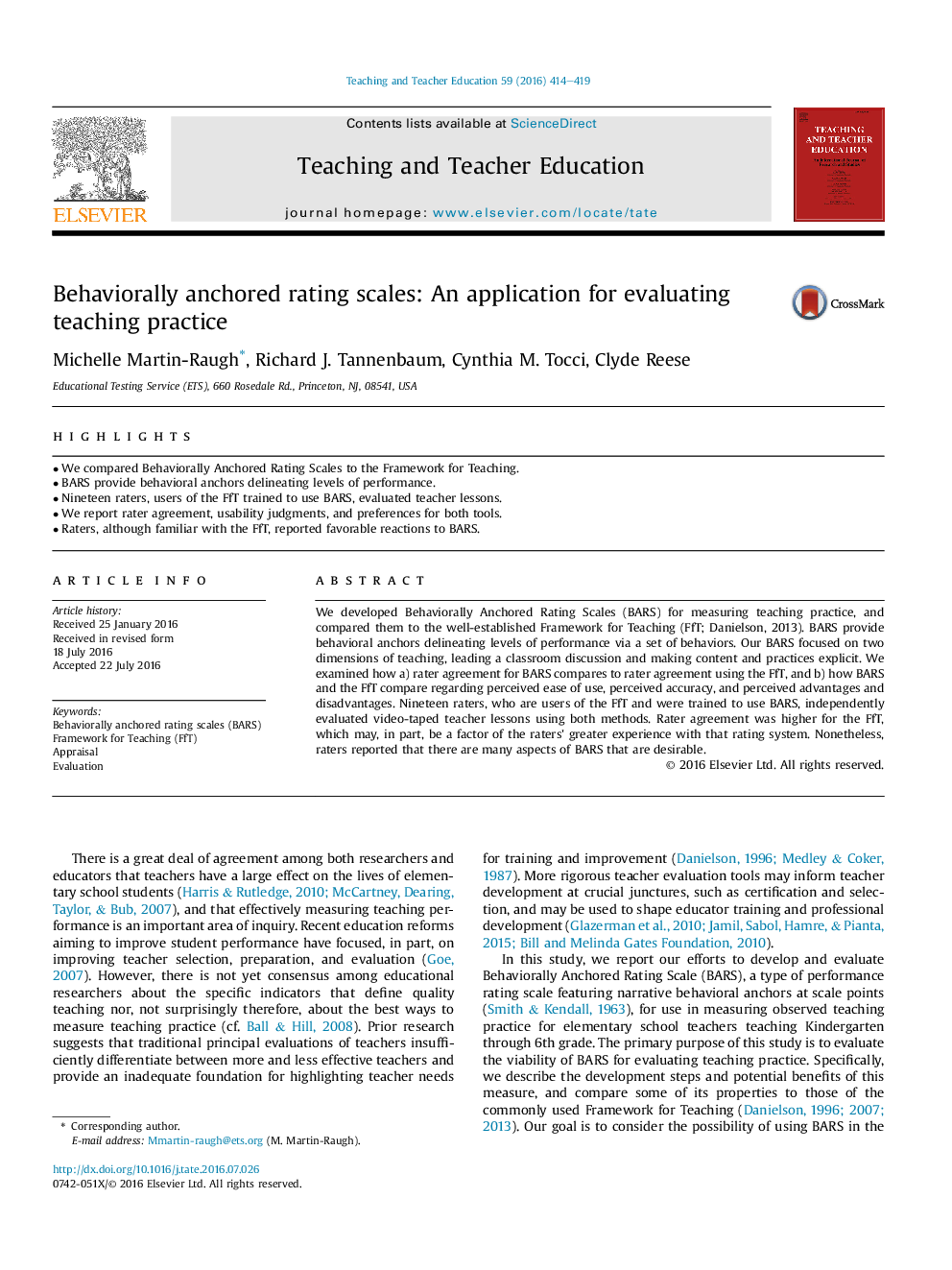| Article ID | Journal | Published Year | Pages | File Type |
|---|---|---|---|---|
| 6850603 | Teaching and Teacher Education | 2016 | 6 Pages |
Abstract
We developed Behaviorally Anchored Rating Scales (BARS) for measuring teaching practice, and compared them to the well-established Framework for Teaching (FfT; Danielson, 2013). BARS provide behavioral anchors delineating levels of performance via a set of behaviors. Our BARS focused on two dimensions of teaching, leading a classroom discussion and making content and practices explicit. We examined how a) rater agreement for BARS compares to rater agreement using the FfT, and b) how BARS and the FfT compare regarding perceived ease of use, perceived accuracy, and perceived advantages and disadvantages. Nineteen raters, who are users of the FfT and were trained to use BARS, independently evaluated video-taped teacher lessons using both methods. Rater agreement was higher for the FfT, which may, in part, be a factor of the raters' greater experience with that rating system. Nonetheless, raters reported that there are many aspects of BARS that are desirable.
Keywords
Related Topics
Social Sciences and Humanities
Social Sciences
Education
Authors
Michelle Martin-Raugh, Richard J. Tannenbaum, Cynthia M. Tocci, Clyde Reese,
